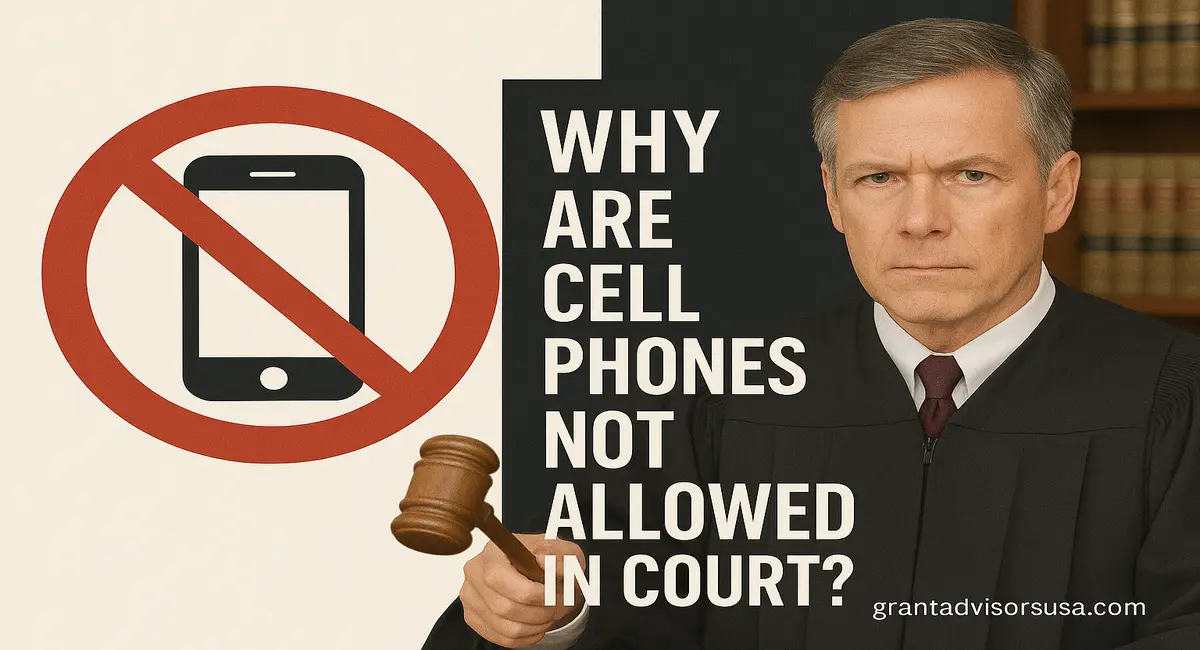
Cell phones are everywhere these days. We use them to make calls, text, and browse the internet. But in courtrooms, they are usually not allowed. Courts are serious places where important legal decisions are made. To maintain fairness, respect, and focus, many courts prohibit the use of cell phones during trials and hearings. This rule may seem strict, but it exists for good reasons. Let’s find out in simple terms why courts ban cell phones. Why are cell phones not allowed in court? Let’s take a look at the main reasons.
Why Are Cell Phones Not Allowed in Court?
Cell phones are not allowed in court to avoid disruption during court proceedings. Cell phones can jeopardize confidentiality by recording or sharing sensitive information. These rules also prevent jurors and others from being unduly influenced or distracted.
Preventing Distractions
Banning “cell phones in courtrooms” is a good decision. The most immediate and practical reason for banning phones in courtrooms is to prevent distractions.
A ringing phone, vibration alert or even a person texting can disrupt the flow of the trial and distract judges, jurors, lawyers and witnesses.
Such interruptions can affect the concentration and professionalism required in legal proceedings. That is why phones are not allowed in court.
Protecting the integrity of the trial
Cell phones can be used to record audio or video, take photos or communicate with people outside the courtroom. Using cell phones in court can be a major threat to the fairness of a trial because unauthorized recordings can be leaked, witnesses can be coached through messages or jurors can be influenced by outside opinions. To prevent a breakdown of the judicial process, many courts enforce a strict “no phone” policy.
Protecting privacy and confidentiality
Court cases often involve sensitive and confidential information. Allowing phones in court can increase the likelihood of that information being captured, shared, and leaked inappropriately.
Phones are not allowed in court because people share information on social media. Whether it is the identity of a minor, confidential business data, or personal testimony, confidentiality must be maintained to ensure the safety and rights of all involved.
Preventing jury tampering and misconduct
Jurors are expected to make decisions based only on the evidence and truth presented in court. However, with a smartphone, a juror can easily conduct outside research, read news coverage of the case, or even communicate with others about the trial – all of which are considered juror misconduct. Banning phones helps ensure that jurors remain impartial and are not influenced by outside information.
Security concerns
In high-profile cases, cell phones can pose a security risk. Photos or videos taken inside the courtroom could compromise the safety of witnesses, jurors, or even legal professionals. In addition, some courts worry that phones could be used to coordinate disruptions or even facilitate criminal activity.
In Conclusion
So, i think you under that why aren’t cell phones allowed in courthouses? – Phones are not allowed in court to maintain peace, respect and fairness. Because trials are serious and everyone involved deserves full attention and privacy. While it may seem like a small rule, banning phones protects the rights of everyone in the courtroom and keeps the legal process running smoothly. So the next time you go to court, it’s best to turn off your phone and leave it outside – not just because it’s the rule, but because it helps ensure that justice is served properly.

Leave a Reply